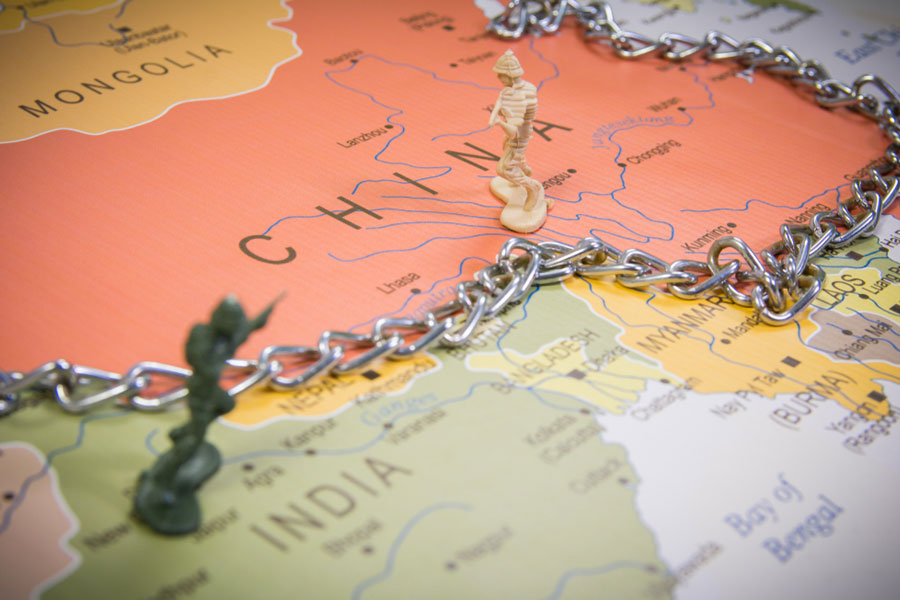
One day soon someone will surely make a movie, The Honeymoon Murder , about the life and death of Anni Dewani. Just before the credits roll, there will perhaps be an epilogue that will resolve the mystery at the heart of this story.
Quite apart from the question of whether Shrien Dewani had a hand in the killing of his bride of barely two weeks is the issue of why he married her at all. During the trial, it was disclosed that he was homosexual, had been a member of a gay site called Gaydar for six years, promoted himself as "passive" by using the moniker, "Asiansubguy" and paid for the services of male prostitutes.
It's a question that haunts Anni's father, Vinod Hindocha, who has just written a book about his daughter. Perhaps writing Anni Dewani: A Father's Story will provide some solace for Hindocha. Written with the help of UK-based reporter Shekhar Bhatia, who covered Shrien's trial in Cape Town, it is impossible not to be moved by the tragedy that has engulfed his family.
When Anni, seeking physical reassurance that he really loved her, tried to nudge him into having sex with her, Shrien couldn't. His uncomprehending wife confided her feelings of abject rejection in text messages to her cousin, Sneha, with whom she shared her most intimate thoughts.
When Anni told Shrien she did not think they were right for each other, why did he repeatedly talk her round with text messages expressing real ardour? Maybe he really did believe he was "bisexual" but when he found he could not perform did he seek a way to get rid of his wife by hiring two killers in South Africa via his taxi driver as the prosecution alleged? But the case against him was so weak that a South African judge, Jeanette Traverso, had little difficulty in throwing it out.
Shrien is back in Bristol with his family who run nursing homes. Anni's parents, Vinod and Nilam Hindocha, have returned to their home in the small Swedish town of Mariestad, not far from a lake where their daughter's ashes have been scattered.
As Hindocha emphasises again and again, Shrien has never actually been questioned under oath about what did happen on the night of November 13, 2010, while he and his bride were on honeymoon in South Africa following their Mumbai marriage. Their taxi was carjacked, Shrien allegedly ejected from the vehicle and Anni's body discovered early the next morning, slumped on the back seat. She had been shot in the neck at close range.
In the book, written "in loving memory of my beloved daughter Anni", Hindocha recalls an earlier upheaval when his parents were expelled from Uganda with 80,000 other Indians in 1972. His father had left India, aged 18, in 1936, for Uganda, a "beautiful country without any restrictions". In Sweden, where they found shelter, the couple began by picking strawberries. In time, Vinod made good and married Nilam, who gave birth to their second daughter, Anni, on March 21, 1982.
As a young woman Anni moved to the UK to be with her cousin and best friend, Sneha.
During the months leading to the wedding, Anni would blow hot and cold on whether she wanted to marry Shrien. When she asked her father whether she was "ugly", he had no idea this was because Shrien would not allow Anni to touch him before marriage. On their wedding night, they slept separately.

The book is an account of the nightmare that Hindocha and his family have lived through since he got a call from Shrien's father, Prakash Dewani, on a November night in 2010: "Vinod, Anni and Shrien have been kidnapped."
Before changing planes at Amsterdam for Cape Town, he called his brother Ashok in Sweden. He had heard from Shrien's brother, Preyen, who had been in touch with the Cape Town police, that Anni's body had been found: "They shot Anni."
The book moves backwards and forwards in time. In Cape Town, Hindocha catches up with his son-in-law, who refuses to accompany him to the morgue, instead using the opportunity to buy a new suit and get a haircut. Hindocha took comfort in the police disclosure that Anni wasn't raped.
He writes of the moment he finds her in an open coffin wearing a red dress: "She looked as though she was sleeping peacefully and might wake up and greet her father."
The funeral in London turns out to be a disaster because of Shrien's decision to shut out Anni's side of the family. Letters they had written to her are tossed out of her coffin. But Hindocha is allowed to witness his daughter's coffin being consumed by flames at Golders Green cemetery.
Finally, his feelings for Shrien, whom he was once prepared to love as his own son, have turned to disgust: "We had never accused Shrien of killing her. But we did accuse him of failing her and cheating her... This is the man who left his wife in her hour of need. This man cheated on her with gay prostitutes. This man surfed gay websites on his laptop on his honeymoon and a few hours after his wife has been shot dead... This man is a terrible person. Why did he come into our lives?"
The irony is that when Anni first brought Shrien home to meet her parents, he appeared presentable, well-educated, respectful and earned high marks by bending down and touching Nilam's feet. He slightly unsettled Hindocha, however, by calling him "Dad" on a first meeting.
"He was on the surface 'a good Hindu boy', but now he was going to have to face up to the claim that he had married her to disguise his sordid background," Anni's father writes.
He adds: "I wonder whether Anni had discovered his hidden true self during their honeymoon in South Africa and was about to expose him. Could this be why she met her death?"










